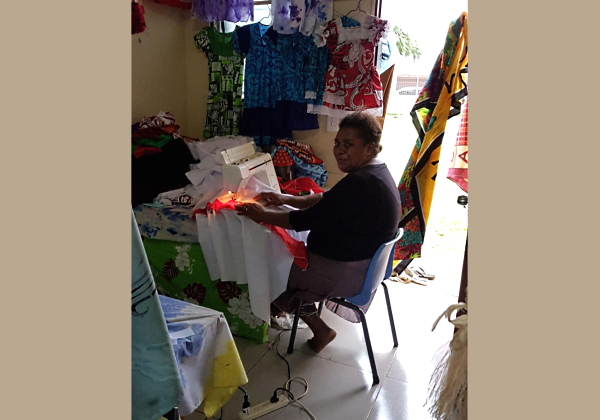
Sewing workshop Vanuata (Image: Pelena Energy)
In candid terms, Reserve Bank governor Philip Lowe has told parliament that “the banks are very scared of making mistakes on the AML front.”
The context, in a regular appearance with the House Economics Committee on Friday, was the sustainability of critical banking services to many Pacific island economies, but there can be little doubt Lowe had in mind the history of whopping fines for two major banks and the ongoing closure of long-standing agency services to select financial services businesses, including small APRA-regulated ADIs (by Westpac, for example).
Jason Falinski, the Liberal member for Mackellar asked the RBA governor about “AML and the impact it's having on Australian banks trying to service the South Pacific market”.
“It's a major issue at the moment,” Lowe confirmed.
“The cost and availability of foreign currency transfers to the South Pacific, in every meeting I have with the South Pacific governors, is the main issue they want to talk about. They don't want to talk about quantitative easing,” he said.
“You can understand why. For some of these countries, remittances are equivalent to 30 or 40 per cent of GDP, so the costs of remittances are huge and the channels through which money can be transferred from Australia and New Zealand to the islands are a really major issue.
“Given the significance, we've had many discussions with the banks about why they can't do better. To summarise their answers: 'Well, it's a risky business. AML is kind of problematic. If we run afoul of the AML guidelines then the penalties, as we know, can be extraordinary.'
“The [Australian] banks think there's just not the financial return, relative to the risk they're carrying, in doing this business.”
Lowe then disclosed a bilateral project to remediate this social justice dilemma.
“The Reserve Bank of Australia and the Reserve Bank of New Zealand are currently working with a number of South Pacific countries in trying to develop an AML utility or a know-your-customer utility to overcome some of these problems,” he said.
“It's hard work, and the banks are very scared of making mistakes on the AML front.”